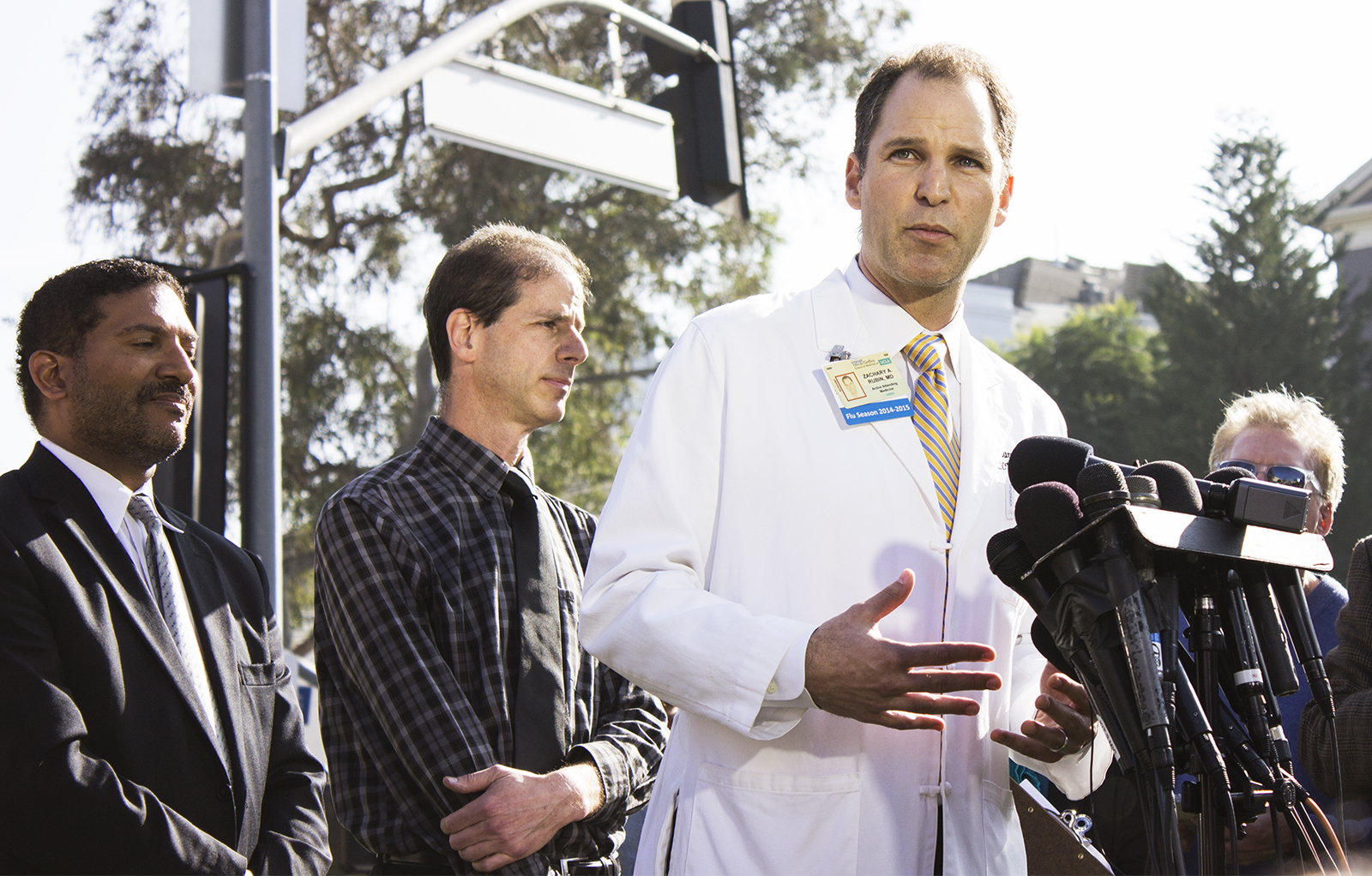UCLA Health officials hold press conference on superbug outbreak

Dr. Zachary Rubin, Ronald Reagan UCLA Medical Center’s medical director of clinical epidemiology and infection prevention, spoke at a press conference Thursday about the superbug. (Eu Ran Kwak/Daily Bruin)
UCLA officials have known since late January about the link between a “superbug” outbreak and two patient deaths at the Ronald Reagan UCLA Medical Center, officials said at a press conference outside the hospital Thursday.
Patients who underwent procedures using devices called duodenoscopes were found to have symptoms of a superbug infection in mid-December. But the hospital continued the procedures until Jan. 28 because they are potentially life-saving for many, said Dr. Zachary Rubin, the hospital’s medical director of clinical epidemiology and infection prevention.
Using duodenoscopes is the least invasive way to drain pancreatic and biliary duct fluids, according to a U.S. Food and Drug Administration statement on the scopes. On Jan. 28, an internal investigation linked the scopes to the bacteria transmission, and the hospital halted the procedures, Rubin said.
Since Jan. 28, UCLA has notified more than 170 patients that they may have been exposed to an antibiotic-resistant bacteria called carbapenem-resistant Enterobacteriaceae, commonly known as CRE, if they underwent procedures with duodenoscopes between October and January, Rubin said.
However, UCLA Health did not contact some patients until weeks after the link between the scopes and the bacteria transmission was found because the hospital had to complete an investigation and wanted to avoid notifying those who did not have the procedure, Rubin said. The bacteria has infected at least seven patients so far.
The outbreak is not a public health risk for people in the region, as only those who underwent the procedure with an infected scope may have the bacteria, public health officials said Thursday. UCLA Health officials said hospital workers used an “abundance of caution” when responding to the bacteria.
The hospital did not notify the public about the superbug until Wednesday because it had to notify health agencies of the outbreak and review its procedures thoroughly, said Dr. Robert Cherry, chief medical and quality officer of UCLA Health. The hospital waited some time to develop a thoughtful response, he said.
The hospital’s public announcement Wednesday came hours after the Los Angeles Times published an article linking the superbug to the two patient deaths.
Patients with the superbug showed symptoms, such as fevers and chills, after the procedure, Rubin said. Officials at the conference said they could not confirm when the two patients died.
On Thursday morning, the U.S. Food and Drug Administration issued a warning saying the design of the scopes might lead to bacteria transmission between patients because they are difficult to effectively sterilize.
Following the outbreak, the hospital sterilized the scopes with gas and followed the cleaning process recommended by the manufacturer of the scopes, the hospital said in a statement. Rubin said hospital officials did not find any deficiencies in scope cleaning. The scopes were purchased in June, Rubin said.
Olympus Corporation, a Japan-based company whose U.S. subsidiary was one of the manufacturers of the medical scopes linked to the UCLA infections, said in a February press release that its subsidiary is under investigation by the U.S. Department of Justice under the Anti-Kickback Statute and the False Claims Act.
Compiled by Sam Hoff and Jeong Park, Bruin senior staff.


